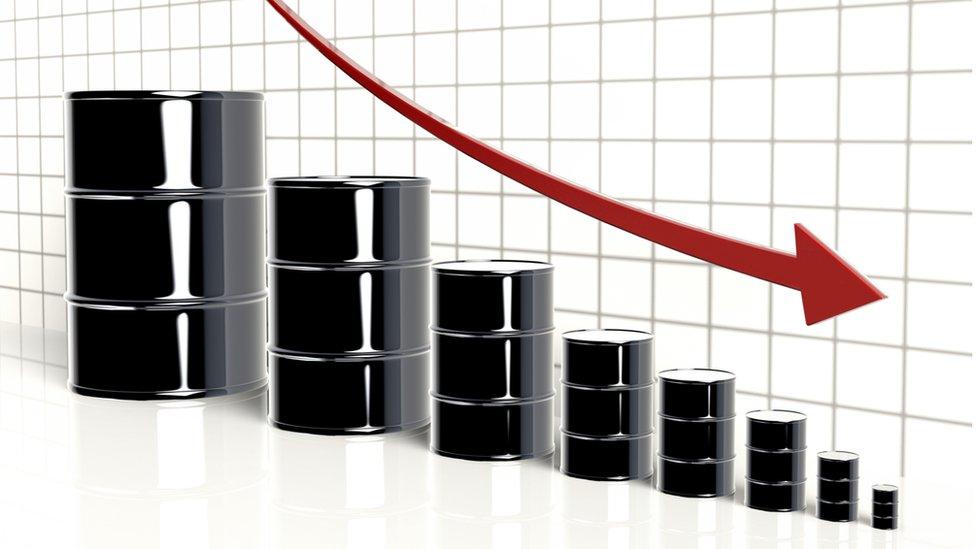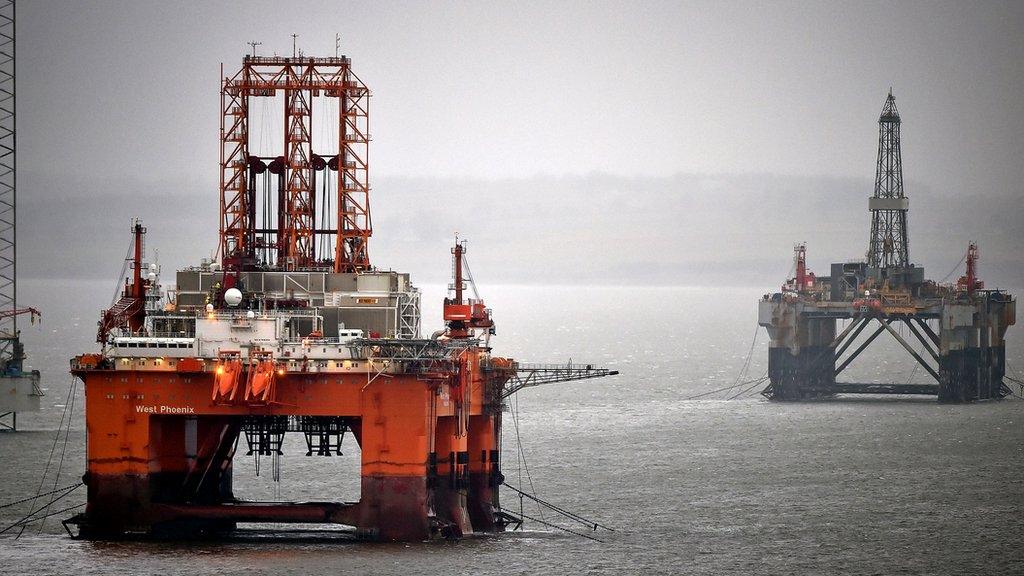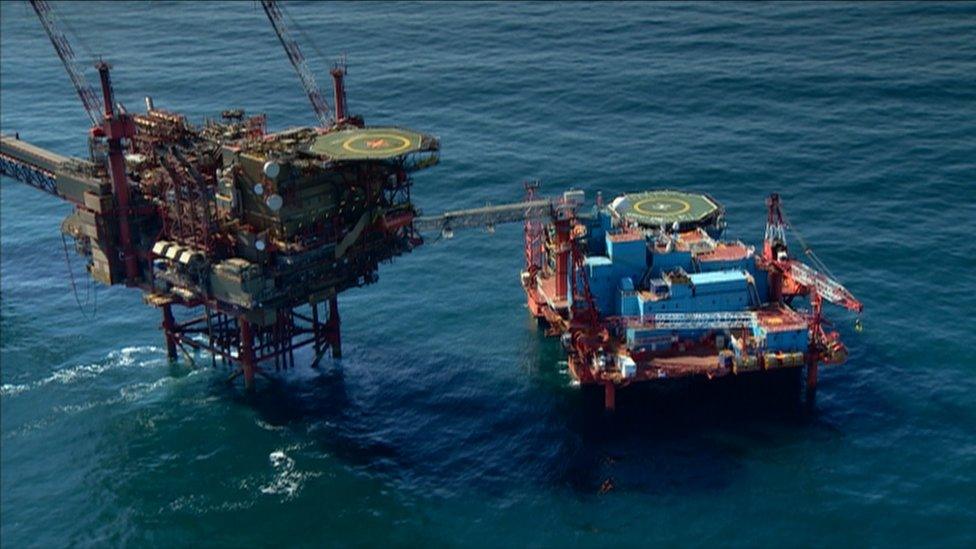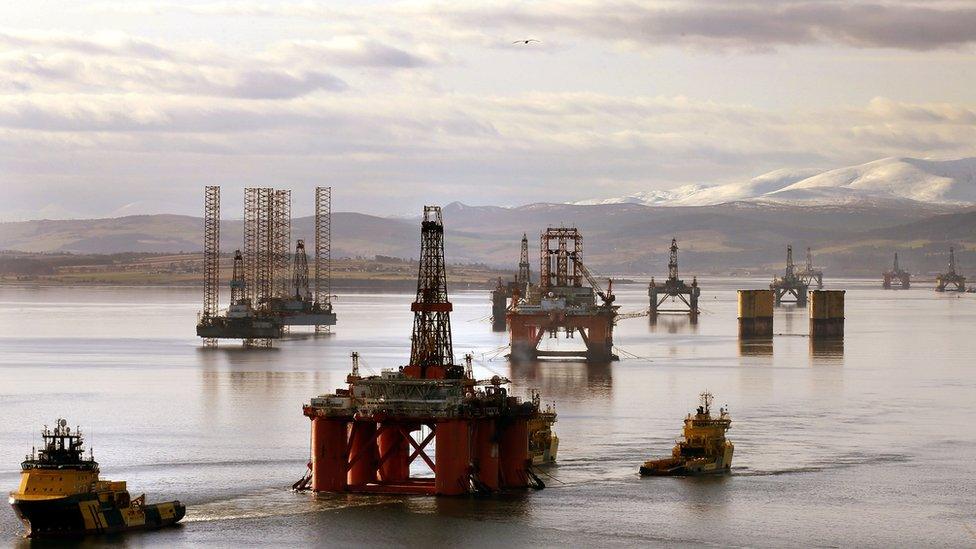Playing politics with the 'dismal science'
- Published

Thomas Carlyle, I think most would concede, is the finest writer and thinker to emerge from Ecclefechan. At least, unless you know better.
He is customarily credited with billing economics as "the dismal science." Others, considering this pursuit, tend to suggest that if you consult two economists, you will receive three analyses.
Today's exercise, GERS, ostensibly deals with economic statistics: with facts or, at least, estimated facts. However, it might also be recognised that GERS has been a political initiative from the outset.
Formally introduced in 1992 by the then Scottish Secretary Ian Lang, it was designed - as the minister acknowledged in a leaked document - to "undermine" the UK government's rivals.
It was intended, in part, to demonstrate to the public that devolved self-government was A Bad Thing.
Much later, with a devolved parliament firmly in place, matters transmogrified as the annual GERS figures were used by SNP ministers to suggest that Scotland's economic position was relatively strong and that, with oil, we were potentially rich beyond ambition.

Today, a rather different commentary emerged. Yes, SNP ministers continued to insist that Scotland's underlying economy remains strong, only outpaced by London and the south-east of England.
But the oil stats are, to borrow from the sage of Ecclefechan, dismal. The decline in the oil price has inevitably worked through to revenues for the state and now to the putative Scottish balance sheet.
I say "putative" because, of course, Scotland is not, for now, an independent state. Today's figures, Government Expenditure and Revenue Scotland, external, estimate total spending and tax, including a Scottish allocation of oil revenues.
The finding for 2014/15 is that oil revenues for Scotland are down 55%, to £1.8bn. That is offset by an increase in onshore revenue, up 3.2%. However, that growth rate is lower than the comparable UK figure while total expenditure in Scotland, per head, remains £1,400 per capita higher than for the UK as a whole.
So has today's publication generated a genteel, academic discourse among economists, whether dismal or otherwise? Perhaps, somewhere, it has.
'Grim humour'
However, in keeping with the political origins of GERS, such interlocution has been thoroughly swamped by a fierce argument among the denizens of Holyrood, with the Scotland Office and the PM chipping in.
Labour, Lib Dems and Tories each say that the SNP's economic case for independence has been fatally undermined. They argue further that SNP leaders misled the people of Scotland when advocating the end of the Union during the referendum.
First Minister Nicola Sturgeon acknowledges that the figures are difficult. But, confronting the wicked media this morning, self among them, she offered a series of countervailing arguments.
Her demeanour was serious. But there was room for a little grim humour. She noted that her Finance Secretary, John Swinney, had balanced the books in his devolved budget each year.
My esteemed journalistic colleague (and erstwhile school and university chum) Peter Jones snorted, as only he can: "Of course he does! He would go to jail otherwise!"
Oil fund
Ms Sturgeon drily acknowledged this fact before going on to stress that it was the finance secretary who would be sent to the slammer. Emphatically not the first minister. Perhaps they could use the cells which still exist in the bowels of St Andrew's House, a legacy of the brutal Calton nick which once stood there.
The FM urged us to take the long view. Other than this year, total tax take per capita had been higher in Scotland than the UK since 1980. The historic trend, therefore, was more upbeat. Further, the present Scottish economy was relatively robust, both in terms of investment and employment.
To underline this point, she was speaking in a high-tech research and industrial complex, albeit one housed in a contender for the ugliest building in Edinburgh.
She noted, in addition, that the North Sea had generated some £300bn for the UK Treasury, without an oil fund being established for Scotland.
And for the future? Given the trend in oil prices, it is likely that next year's GERS figures may be more challenging still. Ms Sturgeon declined to speculate.
- Published9 March 2016

- Published9 March 2016

- Published9 March 2016
- Published7 March 2016
- Published2 March 2016
